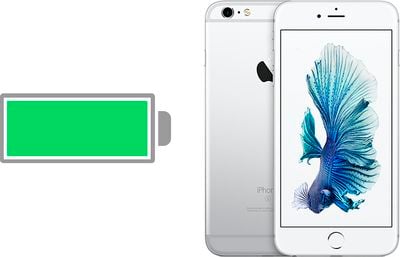Apple replaced a total of 11 million iPhone batteries under the $29 battery replacement program that was introduced at the end of 2017 and ran through 2018 before ending on December 31, 2018.
The tidbit was shared by Tim Cook at a recent all-hands meeting with Apple employees and relayed by Daring Fireball's John Gruber, who heard the information from an unnamed source.

Apple replaced approximately 9 to 10 million more batteries than it would have during a normal year, said Cook. Apple normally replaces 1 to 2 million batteries each year.
Cook cited the battery replacement program as one of the reasons why Apple's Q1 2019 guidance was cut earlier this month after poorer than expected iPhone sales. Apple now expects revenue of $84 billion, down from a November estimate of $89 to $93 billion.
It's not entirely clear why Apple didn't know how the battery replacement program would impact sales earlier in the year given that it ran throughout 2018, but Gruber speculates that while Apple knew battery replacements were higher than normal, the true effect of the replacement program did not become known until the new iPhone XS and XR models were released and fewer people upgraded.
Apple initiated the $29 battery replacement program after outcry over an iOS 10 update introduced a power management feature that slowed the performance of some older iPhones with degrading batteries. The power management features were designed to prevent unexpected shutdowns and prolong the iPhone's life, but some customers saw it as proof of planned obsolescence.
Apple apologized for the misinformation and introduced the discounted battery replacement program to appease customers. In a device with a degraded battery that is experiencing slowdown issues because of performance management software, replacing the battery restores full functionality, which undoubtedly led some customers to stick with an older iPhone rather than upgrade.
In February 2018, Cook said that Apple had not considered how the battery replacement program would impact iPhone upgrade rates, but it's clear it ultimately had an impact on Apple's bottom line.
"We did it because we thought it was the right thing to do for our customers," said Cook at the time. "I don't know what effect it will have for our investors. It was not in our thought process of deciding to do what we've done."



















